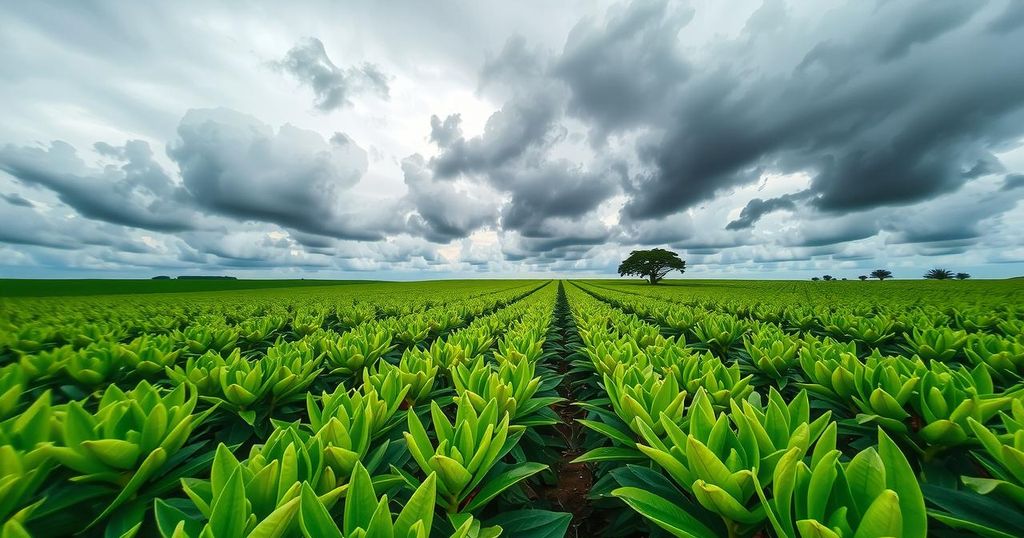Farmers in Madagascar’s Sava region report significant challenges due to climate change, affecting crop cycles and water availability. A survey revealed that most farmers are aware of worsening conditions but few are adapting their practices. Financial barriers impede action, with policies needed to support sustainable farming. The study suggests innovative methods for resilience in the face of climate impacts, emphasizing the urgent need for adaptive strategies among smallholder farmers.
Farmers in Madagascar’s Sava region are grappling with climate change’s adverse effects, according to a recent survey of nearly 500 small-scale farmers. The study emphasizes the struggles to adapt as erratic weather disrupts traditional farming cycles, particularly in an area that produces two-thirds of the world’s vanilla beans. Numerous farmers reported unusual shifts in rainfall and temperature, with implications for their livelihoods.
The survey, published in PLOS Climate, revealed that many farmers, already facing hardship, struggle to adjust their farming practices in response to climate variability. Notably, while most reported worsening conditions, only a minority expressed taking proactive measures, such as altering planting calendars or investing in better soil health techniques.
In interviews conducted in 2023 in Sarahandrano and Mandena, researchers found that about 75% of farmers indicated their water sources were diminishing or limited by adverse weather conditions. Local farmers grow vanilla, rice, bananas, and coffee but rely heavily on traditional farming methods and manual labor. The changing climate has also increased pest populations and health issues, further complicating farming efforts.
The findings highlight that financial limitations largely impede farmers’ ability to adapt. Approximately 80% of Madagascar’s inhabitants live below the poverty line, rendering them vulnerable to both climatic impacts and the costs associated with adaptive practices. This is compounded by the region’s susceptibility to cyclones and extreme weather events, which can devastate crops and infrastructure.
Researchers advocate for increased support through policy changes that can ease the financial burden of adopting alternative farming methods. Innovative strategies, such as integrating fruit trees into cropping systems or dual-cropping with aquaculture, may enhance sustainability and food security, while helping manage pests effectively.
In light of the warming temperatures and shifting precipitation patterns noted across Madagascar, further research is necessary to understand resilience strategies better among farmers in diverse ecosystems. The study represents the initial analysis in assessing how smallholder farmers adapt, underscoring the urgent need for flexible and resourceful farming approaches in response to climate change.
The study underscores the challenges small-scale farmers in Madagascar face due to climate change, revealing significant gaps in adaptive practices despite their growing concerns. As many farmers struggle with worsening conditions and limited financial capacity to adapt, there is a critical need for supportive policies and innovative agricultural strategies. Continued research is vital to explore effective adaptation practices and ensure the resilience of farming communities in the face of climate variability.
Original Source: www.eurekalert.org




